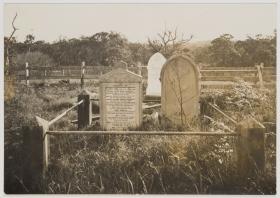Where is that ancestor?
Published:
Do you have an elusive ancestor? Here's five tips to save you time in looking for those elusive records.

- Your ancestor moved out of NSW. If you’ve searched the NSW Registry of Births, Deaths & Marriages without luck, your ancestor may have moved to another state. Each state in Australia has its own registry, and you’ll need to check each one. Perhaps the ancestor moved back to their country of birth or migrated to another country. In some cases, you can check the registries of other countries where they may have lived.
- They died before deaths were registered by the state. Civil registration began in NSW in 1856. Before that, many deaths were registered by churches, but the records may not have survived. You could try checking old cemeteries in the area where the family lived.
- Their name has been misspelt. It’s possible that your ancestor’s death record exists, but you’ve missed it because their name is not spelt as you expect. Think about the other ways the name can be spelt or misspelt, and search on those variations. There are many reasons for different spellings on a death certificate, including illiteracy, clerical mistakes and transcription errors.
- They changed their name to escape a difficult situation. Debt, crime or bigamy are some of the reasons a person may have changed their name. If it was changed informally (on the run), you’re unlikely to find a record.
- You’ve given up too soon! You may not find a death certificate or burial record, but you could check the newspapers of the day. You might find a funeral notice or a colourful story of misadventure. Try searching Trove, a free website of digitised newspapers across Australia.
If you’ve exhausted all avenues for one ancestor, it’s best to stop working on that person and look for a close relative such as a parent, sibling or cousin. The closer the relative, the more likely you’ll find a clue to solve the mystery of the original ancestor. It’s all part of the jigsaw puzzle of your family history.
Happy ancestor hunting!
Laura Molino, Informaton & Access